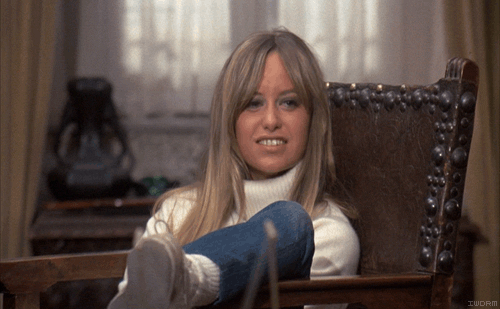skip to main |
skip to sidebar
the-penny-dreadfuls:
With
his stuck-up hairstyle and endearing off key singing, Alfalfa of the
hit comedy series “The Little Rascals” was adored by audience through
out generations, thus cementing him into pop culture history. Even to
this day this character, as well as the rest of rag-tag group of kids,
is fondly remembered. The origional boy to play this iconic role Carl
Switzer. With a combination of good comedic timing, pushy stage parents,
and pure luck, Switzer became one of the most popular child actors of
the 1930’s. As it often is in Hollywood, his star would fall just as
quickly as it rose, leading him to a troubled adult life of drinking and
irrational decisions. It would be Switzer’s infamous bad temper that
would lead to his tragic demise.
Carl Dean Switzer was born on
August 7th, 1927. He lived in parents, George and Gladys Switzer, and
three siblings in Paris, Illinois. The Switzer parents were determined
to make at least one of their children a star. Carl and his brother,
Harold, would dedicate much of their early childhood to learning
different songs and instruments. By no means was little Carl a talented
singer, but his humorously, exaggerated expressions won over audiences.
The brothers had managed to gain some hometown fame for their
performance. Still, it was not enough.
In 1934 the Switzer family
packed up their bags, and headed off to California. The trip was meant
to be a family vacation, but Gladys did not plan on returning to
Illinois until at least one of her children had a contact signed. During
some sightseeing, they made a stop at Hal Roach Studios. The studio
would not allow the Switzer family to enter. While their parents
discussed how to move forward, the Carl and Harold wandered off. The
boys found their way into an open cafeteria that sat right at the edge
of the lot. The room was packed, and the Switzer boys thought it would
the ideal place to start an impromptu show. Their audience loved it.
Carl and Harold were in the right place at the right time; amongst the
people in the cafeteria was producer, Hal Roach. He was quite impressed
by the boys’ performance, and quickly signed them on to one of the
studio’s most popular projects; “Our Gang”, or more commonly known as
“The Little Rascals”. After this day, Carl Switzer would be transformed
into his most iconic character: Alfalfa.
With each release of a
Little Rascals film, Switzer’s popularity grew. By the age of ten he was
one of the most widely recognized celebrities. Alfalfa was funny and
sweet; the typical boy next door. The fans adored him. Off screen,
however, Carl Switzer was just the opposite. He was rude, obnoxious, and
had a stubborn streak that not even the director could break. Switzer
relentlessly teased his fellow cast mates, and would often play cruel
jokes on them. Director, George Sidney, remembered reprimanding Switzer
on many occasions for sticking the other children with large nails.
Productions would come to a halt while they attempted to appease this
tiny terror. Switzer lived by his own rules and ran on his own time. It
was a trait that would follow him into adulthood; one that would that
would cost him both his career and ultimately his life.
After
starring in thirty installments of the Little Rascals, Carl Switzer
finished his role as Alfalfa. This would be the beginning of the
downfall of his career. Carl was only thirteen, but he was considered
the breadwinner of the family. There were five mouths to feed, and it
was up him to provide the food, as well as maintain the luxury lifestyle
that his parents had become accustomed to. As it is with many child
stars, Switzer found himself struggling to secure new roles. He would
never be taken seriously as an adult actor; all anyone could see was
Alfalfa. Switzer’s reputation of being difficult did not help his cause
either. He managed to snag a few small parts in movies, including
playing Mary Hatch’s date in “It’s a Wonderful Life”. As much as he
tried, Switzer would not take up a starring role again. The world had
once loved Alfalfa, but now it seemed no one wanted anything to do with
Carl Switzer.
By the late 1950’s, with his acting career over and
no education to fall back on, Switzer decides to find a new calling. He
took on a job as a bartender, and in his spare time worked as a hunting
guide. Switzer also began a well established dog breeder. He obtained
several famous clients, including James Stewart and Henry Fonda. In 1959
Carl Switzer borrowed a dog from a friend named Moses Samuel Stiltz for
a hunting trip. Unfortunately, during the expedition the dog ran off
after a bear, and became lost. Switzer did his best to track it down,
but after some time called off the search. He posted flyers of the
missing dog throughout town, offering $35 reward for its return. A few
days later, a man showed up to a bar Switzer was currently working at.
With him was the dog; alive and well. The former child star thanked him,
and then paid him the reward. He even bought the man a few drinks to
further express his gratitude. At the end of the ordeal Switzer ended up
paying a total $50 for the borrowed dog. Despite the happy ending,
Carl’s infamous temper began to stew.
For a period of several
days, Switzer brooded over is poor luck. Why should he have to pay so
much for a dog that wasn’t even his? Fueled by fury and large quantities
alcohol, he called up Moses Stiltz and demanded his $50 back. Stiltz,
of course, disagreed. It was Carl who lost the dog, and it was Carl who
should have to pay for it. Switzer was not ready to give up. He went to
Jack Piot, another friend of his, and ranted to him about the situation.
Piot agreed with Carl; the whole thing was ridiculous. Something had to
be done. The two decided the best course of action would be to confront
Moses Stiltz, in person, at his home in Mission Hills. If Stiltz saw
who he was dealing with, surely he would relent and hand over the cash.
It
was 7 PM on January 21st, 1959 when Moses Stiltz heard someone
furiously knocking at the door. Carl Switzer could be heard shouting
from the other side. “I want my $50!,” he continuously bellowed. “I want my $50!”
Switzer
and Piot managed to push their way into the house. Lost in his rage,
Switzer began ranting at Stiltz, demanding that his money to be returned
immediately. When Stilt once again refused, a fight ensued. The former
child star grabbed a hold of a glass domed clock, and smashed it over
the other man’s head. Stiltz, with his left eye bleeding, retreated to a
bedroom where he grabbed his .38-caliber revolver. Switzer followed
right behind him. Undeterred by this new danger, he continued the fight.
He grabbed a hold of the hold of the gun, and while the two men fought
for control, the gun shot off. There was a brief moment of peace while
they recovered from shock. Then, Switzer pushed the other man into the
closet. He pulled a switch blade out of his pocket. If he wasn’t give
his money now, Switzer screamed, he would kill him.
Fearing for
his life, Stiltz quickly retaliated by shooting at Switzer. The bullet
hit him in the groin. An ambulance was called, but by the time he
arrived at the hospital, there was nothing doctors could do for the
internal bleeding. At the age of thirty one, Carl Switzer had bled to
death.
Moses Stiltz was charged with murder. However, five days
after the former child star’s death, Stiltz was sent to stand before a
coroner’s jury. It was there that the shooting was ruled to be in self
defense. All criminal charges against Stiltz were dropped.
January
21st, 1959 brought about another celebrity death. Hollywood icon, Cecil
DeMille passed away at the age of seventy-seven after heart failure.
For much of his life, DeMille entertained the masses. His career began
on Broadway staged, until he moved to silent film. He worked alongside
of the most famous actors of his time, and would later go on to direct
them. His last completed project with the 1956 epic film, “The Ten
Commandments.” In both career and personal sides, Demille’s life was
filled with success. His obituary would reflect that, as it spread over
several pages throughout newspapers. Carl Switzer’s obituary took up a
small box at the bottom of the page.





 "Drunk at the matinee" is a collection of candid poetry about stupid shit that we all experience from day to day.
"Drunk at the matinee" is a collection of candid poetry about stupid shit that we all experience from day to day.







No comments:
Post a Comment